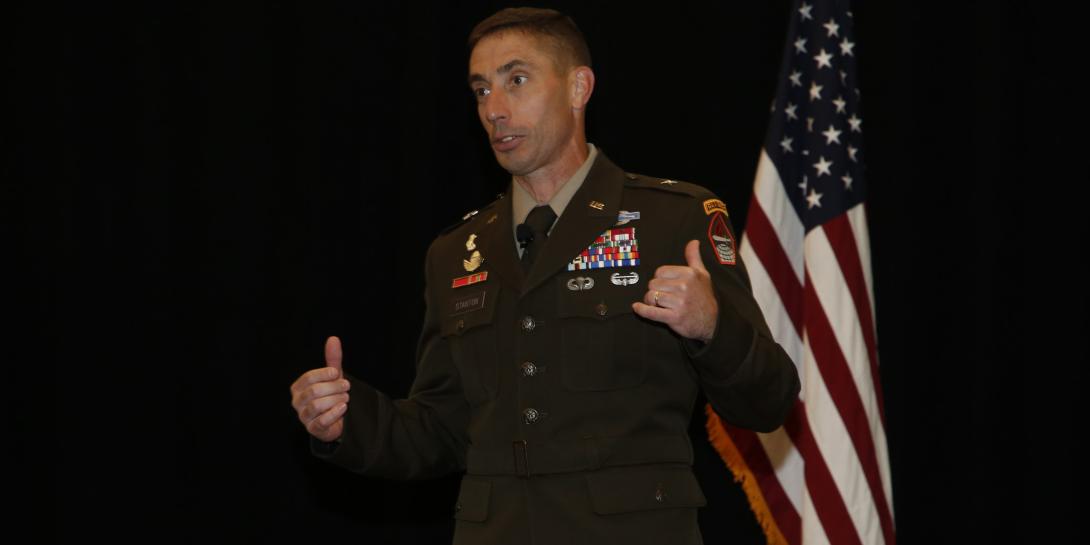Brig. Gen. Stanton Issues Cyber Workforce Challenge
The United States needs to add computer skills to elementary education, and the military needs to broaden its cyber training. That was the gist of the message from Brig. Gen. Paul Stanton, USA, commander, U.S. Army Cyber Center of Excellence, during his opening remarks on the first day of the AFCEA Cyber Education, Research and Training Symposium (CERTS), May 9, in Augusta, Georgia.
Gen. Stanton challenged the audience and ticked off a litany of challenges in the cyber realm with a series of rhetorical questions. “I pose a challenge to you to expand and broaden your scope. What cyber do we do if we don’t have a network? What cyber do we execute if we don’t understand computer science fundamentals? What cyber do we execute if we don't understand how to write algorithms?” he asked. “It’s great that you can write a Python script. It’s great that you can do some network analysis. It’s great that you can actually develop a tool that can be used as an exploit. None of that works if you can’t get to the target.”
The skills necessary to enable the cyber workforce to perform missions is much broader than writing a Python script or developing an exploit, he argued. “If you don’t have efficient algorithms that help you perform analysis, to help you identify when something changes in your operating environment, what are you hunting for? I’d argue you’re not hunting; you’re just wasting time.”
He noted the importance of understanding distributed systems, the electromagnetic spectrum, how to develop algorithms to efficiently move data to the right place at the right time. “You don’t have unlimited bandwidth. You don’t have unlimited storage. You don’t have unlimited compute capacity. If you don’t understand the science and the foundations, then your Python script and your exploit are only so effective,” Gen. Stanton asserted.
He also indicated that American students should learn computing skills at a much earlier age. “We need to increase our talent pool. We can’t start with a 23-year-old that signs up to be an enlisted soldier in the United States Army. That’s too late,” he said. “We have to start early. We have to be able to see two hilltops away and recognize that if we don’t improve our science, technology, engineering and mathematics programs at the earliest stage, we will never fight our way out of scale.”
BG Paul Stanton, commander, U.S. Army Cyber Center of Excellence: Our adversaries are throwing the kitchen sink at us with huge force.#CERTS2022
— George Seffers (pronounced See furs) (@gseffers) May 9, 2022
That need for an early technology education results in part from being outnumbered by adversaries in the field. “Our adversaries are throwing the kitchen sink at us with huge force,” Gen. Stanton said. “We have to start early. We get our kids in a computer lab in an afterschool program getting that first program to work and then we build on it."
He also cited the importance of facilitating and setting the conditions for soldiers to continually learn because technology advances constantly. “Our entire workforce—our folks that are running regional cyber centers, that are in the network enterprise centers, that work at the Joint Force Headquarters-[Department of Defense Information Network], our Cyber Mission Forces—we have to stay current.”






Comments